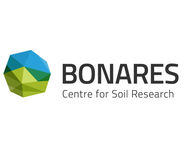Land Consumption and Land Take: Enhancing Conceptual Clarity for Evaluating Spatial Governance in the EU Context (2020.0)
Marquard E., Bartke S., Gifreu i Font J., Humer A., Jonkman A., Jürgenson E., Marot N., Poelmans L., Repe B., Rybski R., Schröter-Schlaack C., Sobocká J., Tophøj Sørensen M., Vejchodská E., Yiannakou A., Bovet J.
Sustainability, 12 (19), 8269
Abstract
Rapid expansion of settlements and related infrastructures is a global trend that comes with severe environmental, economic, and social costs. Steering urbanization toward well-balanced compactness is thus acknowledged as an important strategic orientation in UN Sustainable Development Goal 11 (SDG-11) via the SDG-indicator “Ratio of land consumption rate to population growth rate.” The EU’s simultaneous commitment to being “a frontrunner in implementing […] the SDGs” and to striving for “no net land take until 2050” calls for relating the concepts of land consumption and land take to each other. Drawing on an EU-centred questionnaire study, a focus group and a literature review, we scrutinize definitions of land consumption and land take, seeking to show how they are interrelated, and questioning the comparability of respective indicators. We argue that conceptual clarifications and a bridging of the two notions are much needed, and that the precision required for definitions and applications is context-dependent. While approximate understandings may suffice for general communication and dissemination objectives, accurate and consistent interpretations of the discussed concepts seem indispensable for monitoring and reporting purposes. We propose ways of addressing existing ambiguities and suggest prioritizing the term land take in the EU context. Thereby, we aim to enhance conceptual clarity around land consumption and land take—a precondition for solidly informing respective policies and decisions.